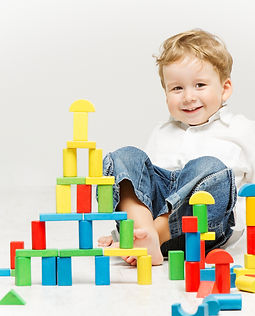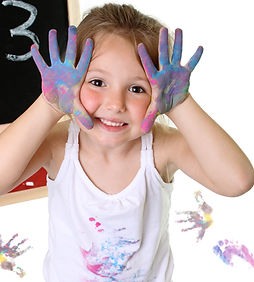

High Potential and Gifted Individuals
High potential and gifted and individuals vary substantially in the nature and level of their abilities. Gifted and talented students frequently require rigorous, relevant and engaging learning opportunities adjustments to the curriculum.
Characteristics of High Potential and Gifted Children
High Potential and Gifted children:
-
demonstrate the capacity to learn at faster rates
-
demonstrate the capacity to find and solve problems
-
display the capacity to make connections and manipulate abstract ideas
-
possess individual learning needs, strengths, interests and abilities
-
differ in their level of giftedness across and within learning areas
-
differ in abilities and aptitudes demonstrated in a single area or across a variety of domains
-
differ in level of achievement
-
display different learning behaviours
It is recognised that parents are excellent identifiers of giftedness in their children. 84% of the children whose parents say that they fit three quarters of the following characteristics, go on to score at least 120 IQ (within the superior range). Over 95% show giftedness in at least one area, but are often asynchronous in their development (development occurs at different times). Consequently, weaknesses in development may depress their overall IQ scores (Dr Linda Silverman - www.gifteddevelopment.com).
Approximately 14 % of children who are identified as being intellectually gifted may also have a learning disability, whereas only about 4 per cent of children in the general population may also have a disability (e.g., specific learning disorder, Autism Spectrum Disorder, ADHD). This is referred to as Twice Exceptional or 2E to represent children who are gifted and also have an additional special need. These children have complex needs, being both “gifted and talented” and also having other special needs.
Why identifying a child’s high potential and giftedness is important
-
Can assist you to decide when it’s right for your child to start preschool and school
-
Can ensure your child get the right learning opportunities at preschool and school
-
Can assist your child to avoid certain challenges of being gifted (e.g., frustration, boredom or disengagement at school). Therefore, assessment is essential to ensure that learning area content and adjustments align with the needs of each child
-
Can assist you to identify additional new learning opportunities in your child’s area of giftedness or talent.
It is important to note that giftedness is a natural ability. Therefore, it may not be reflected in actual achievement.
Sources: (NSW Department of Education Website ); (Australian Curriculum Website); Wormald, C. (2015, March 25). Intellectually gifted students often have learning disabilities. The Conversation.
High Potential and Gifted Children may show a Number of the Following:
Can reason well (good thinker)
Can learn rapidly
Has an extensive vocabulary
Has an excellent memory
Has long attention span (if interested)
Is sensitive (feelings hurt easily)
Shows compassion
Is perfectionistic
Is intense
Is Morally sensitive
Has strong curiosity
Is perseverant in their interests
Has high degree of energy
Prefers older companions or adults
Has a wide range of interests
Has a great sense of humor
Is an early or avid reader (if too young to read, loves being read to)
Is concerned with justice, fairness
Has mature judgment for age at times
Is a keen observer
Has a vivid imagination
Is highly creative
Tends to question authority
Has facility with numbers
Is good at jigsaw puzzles

Other factors to consider
Does your child learn rapidly, easily and efficiently?
Is your child an advanced reader?
Does your child display a great curiosity about objects, situations or events?
Does your child easily retain and use information which has been heard or read?
Does your child have a long attention span in areas of interest?
Does your child excel academically at school?
Did your child learn to speak/read earlier than their peers?
Is your child reluctant to go to school or feeling bored at school?
Do you feel you can't go to your child's school and say, "I have a gifted child," without evidence?
Is your child being under challenged by their learning environment?
Has anyone else in your family been identified as gifted?
If you have answered yes to one or more of these questions, a professional assessment of your child's cognitive and academic abilities at Poulton Respondek Clinical Psychology will provide useful information that may enable you to make more informed decisions about your child's educational needs.

